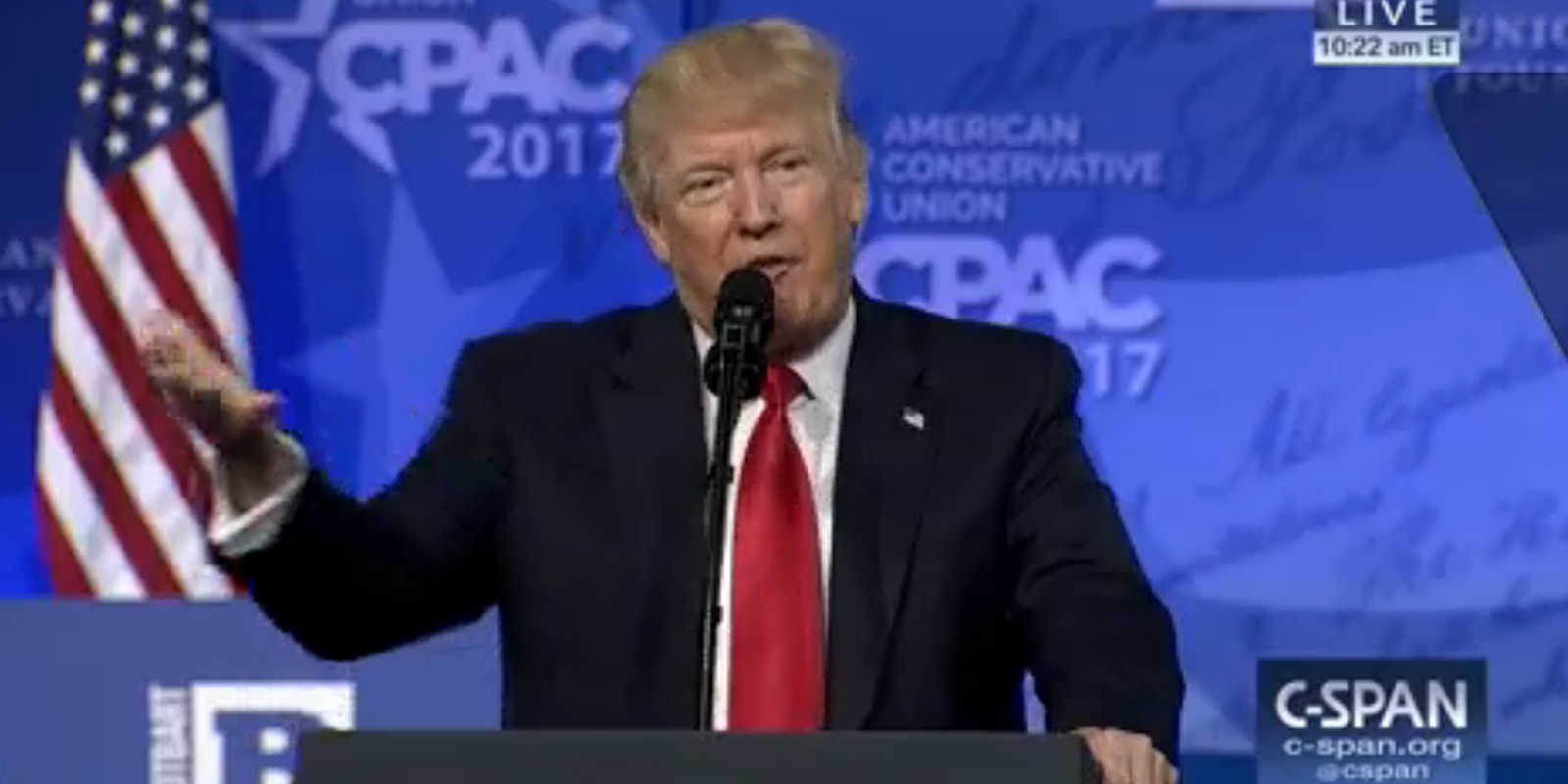President Donald Trump attacked the media’s use of anonymous sources on Friday in an address before CPAC attendees.
In a dig at months of reporting by the nation’s major news outlets that cited leaks from the White House, FBI, and other federal agencies, Trump accused the media of using “fake sources” to back up “fake stories.
“They make up sources. They’re very dishonest people,” said Trump.
Trump’s critique of the press came hours after the Associated Press and CNN reported that White House chief of staff Reince Priebus asked the FBI to deny media reports of contacts between Trump’s campaign and Russian officials.
The AP quoted an anonymous White House official and CNN quoted “U.S. officials” in their accounts.
Trump slammed the use of unnamed sources by the media.
“Let them say it to my face,” said Trump.
Trump has previously and vehemently rallied against the use of anonymous sources.
Anytime you see a story about me or my campaign saying “sources said,” DO NOT believe it. There are no sources, they are just made up lies!
— Donald J. Trump (@realDonaldTrump) September 30, 2016
The failing @nytimes reporters don’t even call us anymore, they just write whatever they want to write, making up sources along the way!
— Donald J. Trump (@realDonaldTrump) October 15, 2016
News organizations typically warn against the use of anonymous sources but established news organizations have relied on them when reporting on issues of national security, war, or corruption within certain presidential administrations. Some notable examples include the Washington Post’s Watergate coverage, the New York Time‘s coverage of the Iraq War, and coverage of Secretary of State Hillary Clinton‘s use of a private email server by both papers.
Usage of leaks-based reporting has notably increased in the first month of Trump’s administration. The Washington Post noted that the State Department has done away with its daily news briefings, a tradition it maintained since Secretary of State John Foster Dulles served under the Eisenhower administration in 1953.
“In fact, in covering my comments the dishonest media did not explain that I called the “fake media” the enemy of the people. They dropped the word ‘fake’,” said Trump.
Many newspapers such as USA Today accurately quoted Trump’s tweet that declared the “fake news media” to be “the enemy of the American people.” Trump and subordinates such as Kellyanne Conway and Steve Bannon have applied the label of “fake news” to virtually every mainstream news outlet, with the exception of Fox News.
Trump repeated claims from last week’s press conference that he wasn’t against the press. The president stressed that he doesn’t mind negative coverage if he deserves them.
“I’m not against the media, I’m not against the press. I don’t mind bad stories if I deserve them. But I’ll tell you I love good stories—I don’t get a lot of them,” said Trump.
Trump then went on to say that there were “great reporters” around and praised a Reuters story from yesterday where the president granted the news organization an exclusive interview.
“They’re talented and they’re as honest as the day is long,” said Trump.
Perhaps in a dig at his critics that claim the president is no fan of the First Amendment, Trump insisted that the First Amendment gave him the right to attack the freedom of the press.
“The First Amendment gives me—it gives you the right to criticize fake news and to criticize it strongly,” said Trump.
Interestingly enough, as many pointed out, Trump has relied on anonymous sources in the past.
An ‘extremely credible source’ has called my office and told me that @BarackObama‘s birth certificate is a fraud.
— Donald J. Trump (@realDonaldTrump) August 6, 2012


